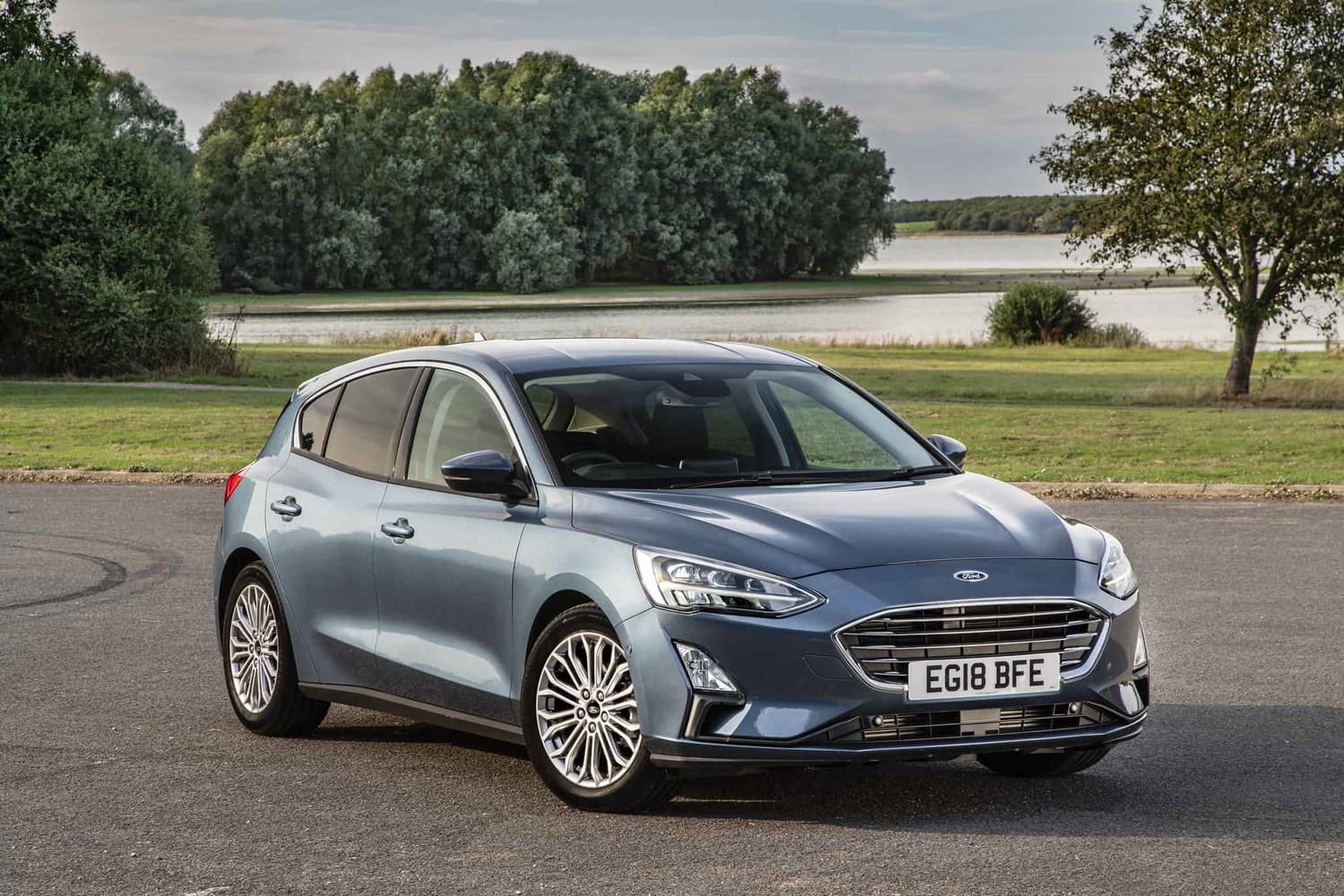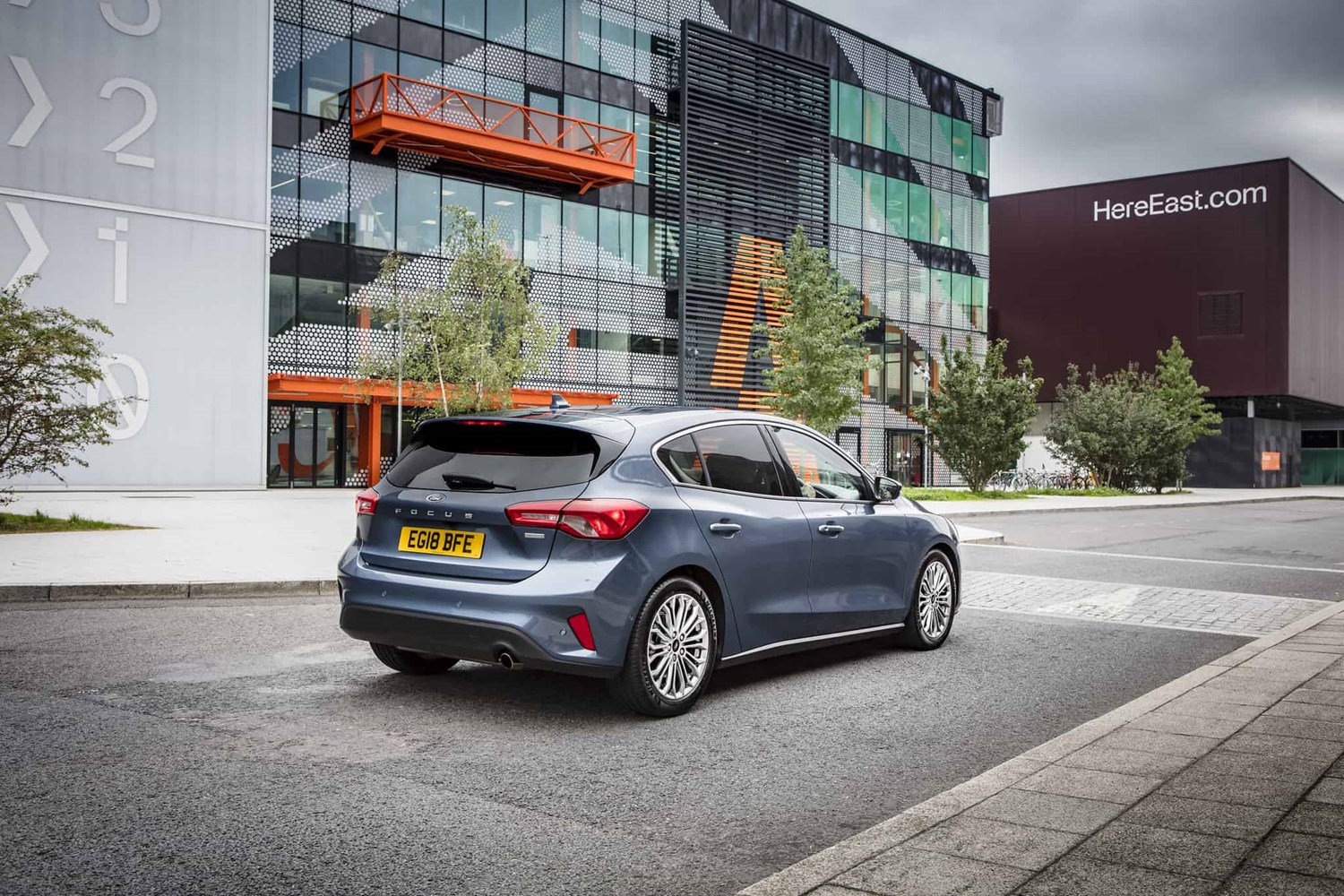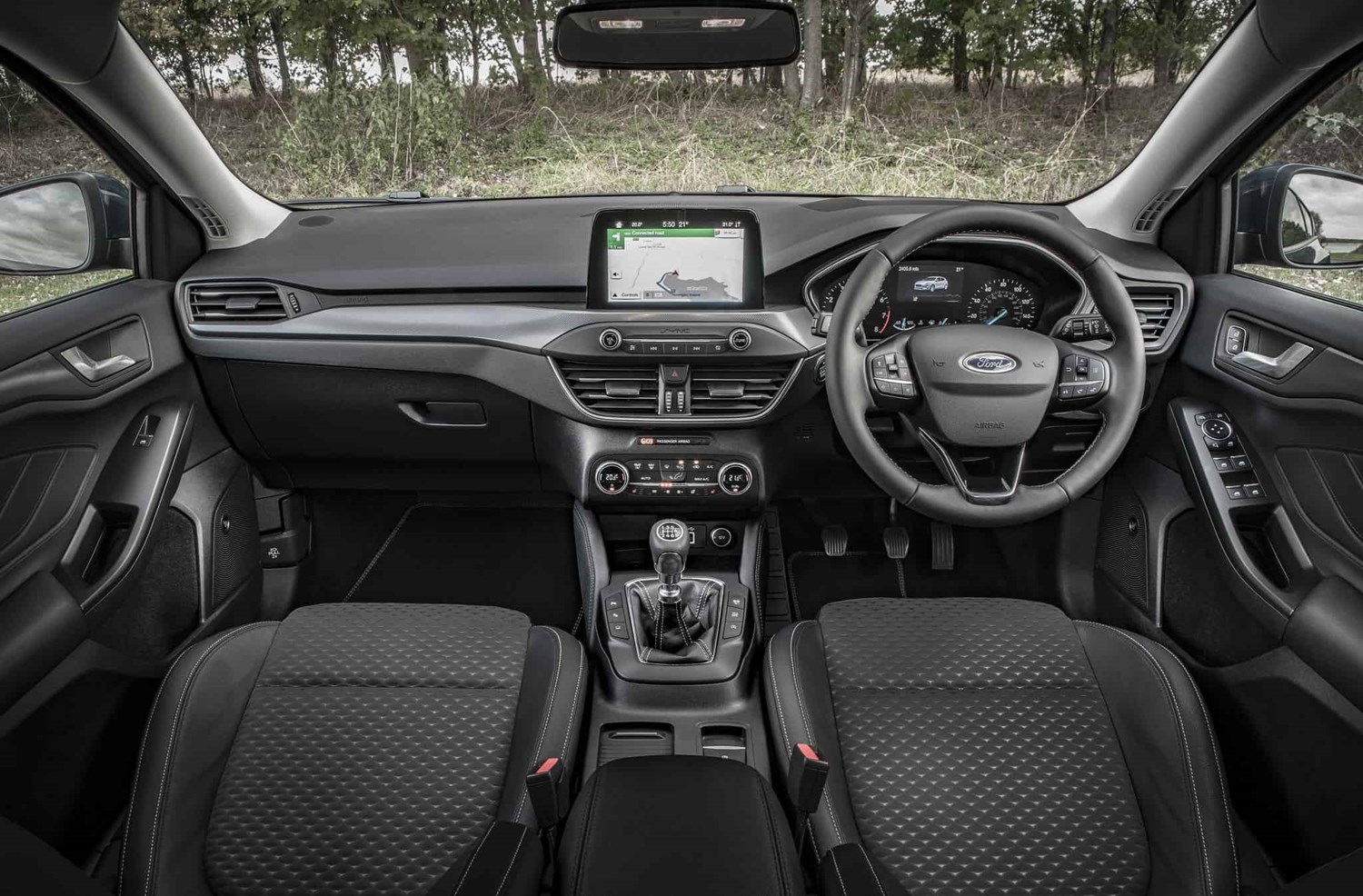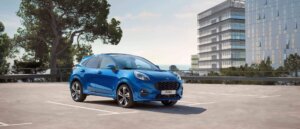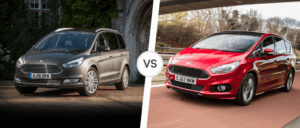Space and practicality
The Focus is by no means the largest car in this class, but it’s easily spacious enough to be utilised as a family hatchback. The 375-litre boot isn’t huge, but it’s competitive with the likes of the VW Golf and Vauxhall Astra and is a practical shape with no intrusions. If you require some extra room, you can also choose the Estate version, which offers a huge 608 litres of load space.
Rear space is also plentiful, with all but the tallest adults likely to have plenty of room in the back, and it’s one of the best cars in its segment for this area.
Safety is also a strong area for the Focus, with the model being awarded a five-star Euro NCAP rating – an 87 per cent child occupant protection rating is particularly impressive. Standard safety kit also includes autonomous emergency braking, lane keep assist and traffic sign recognition.
Engines
There is certainly no shortage of engines available on the Focus, whether you’re looking for a petrol or a diesel model.
Starting with petrol engines, there’s Ford’s popular 1.0-litre EcoBoost unit, which is available with outputs of either 99bhp or 123bhp. If you fancy a bit more punch, there is a larger 1.5-litre available, which you can choose with either 148bhp or 179bhp. Choose the latter and it’s the quickest Focus available outside of the ST derivatives – accelerating from 0-60mph in 8.1 seconds, and reaching a top speed of 138mph.
If you’d prefer a diesel, the line-up kicks off with a 1.5-litre EcoBlue unit, which is available with either 94bhp or 118bhp. The former is very efficient, but offers underwhelming performance. Further up the range there is a 2.0-litre unit, which comes with 148bhp, and delivers a good balance of performance and efficiency. Aside from the entry-level petrol and diesel engines, each model comes with the choice of a six-speed manual or eight-speed automatic gearbox instead.
As with previous generations, the Focus remains fantastic to drive – having balance, well-weighted steering and generally being more fun than a regular five-door hatchback has the right to be.
Running costs
All engines outside of the petrol ST model should prove to be affordable to run, though if you’re looking for the most efficient choice, you should look at the diesel models. Both 1.5-litre diesel versions can manage a claimed 62.8mpg, with CO2 emissions of 118g/kn. The 1.0-litre EcoBoost petrol engines are also good on fuel, with Ford claiming they’ll return 53.3mpg, with CO2 emissions of 120g/km.
Later in 2020, Ford is set to introduce new mild-hybrid versions of the 1.0-litre petrol, which are already available on the new Puma. These new powertrains will be both more efficient and offer improved performance than the existing units.
